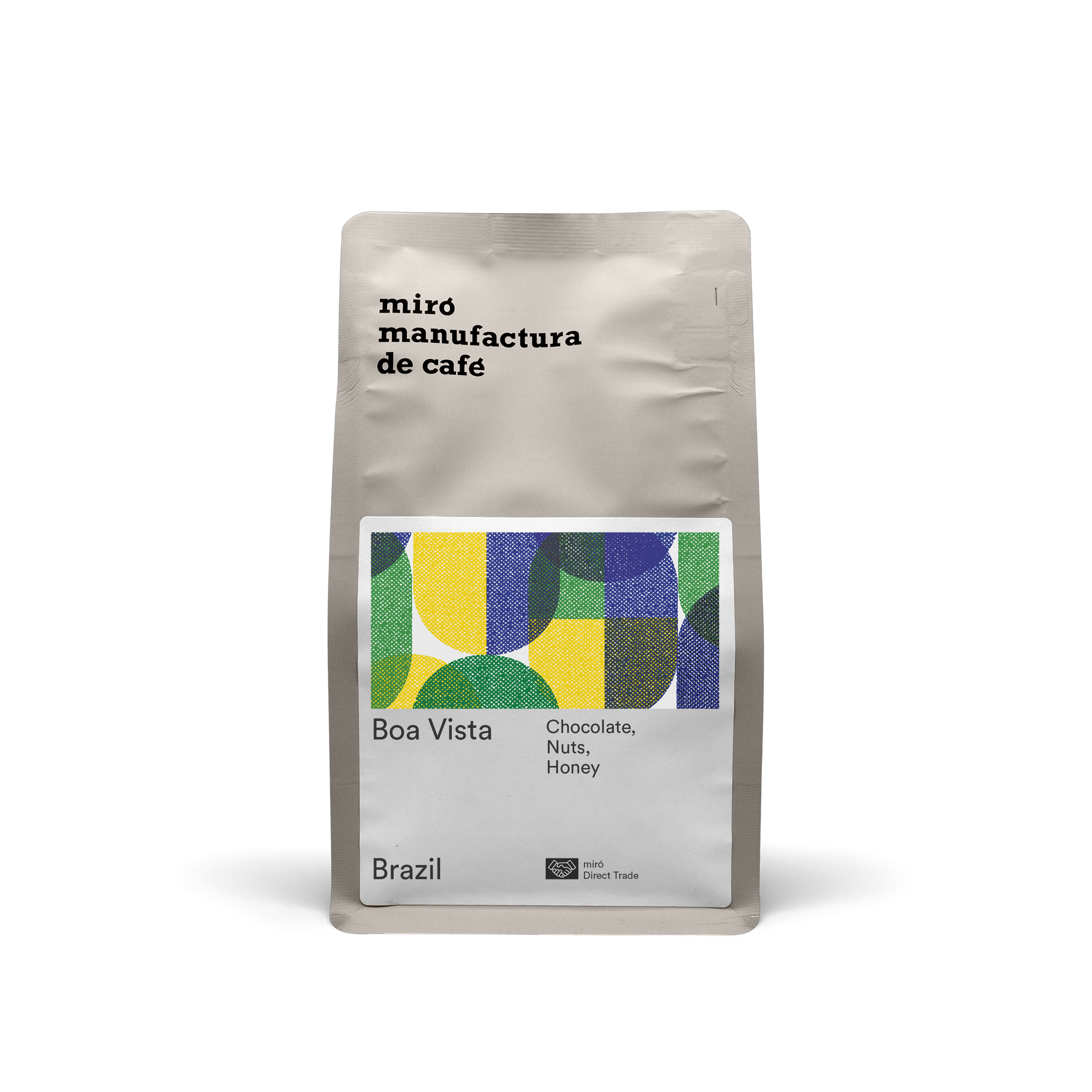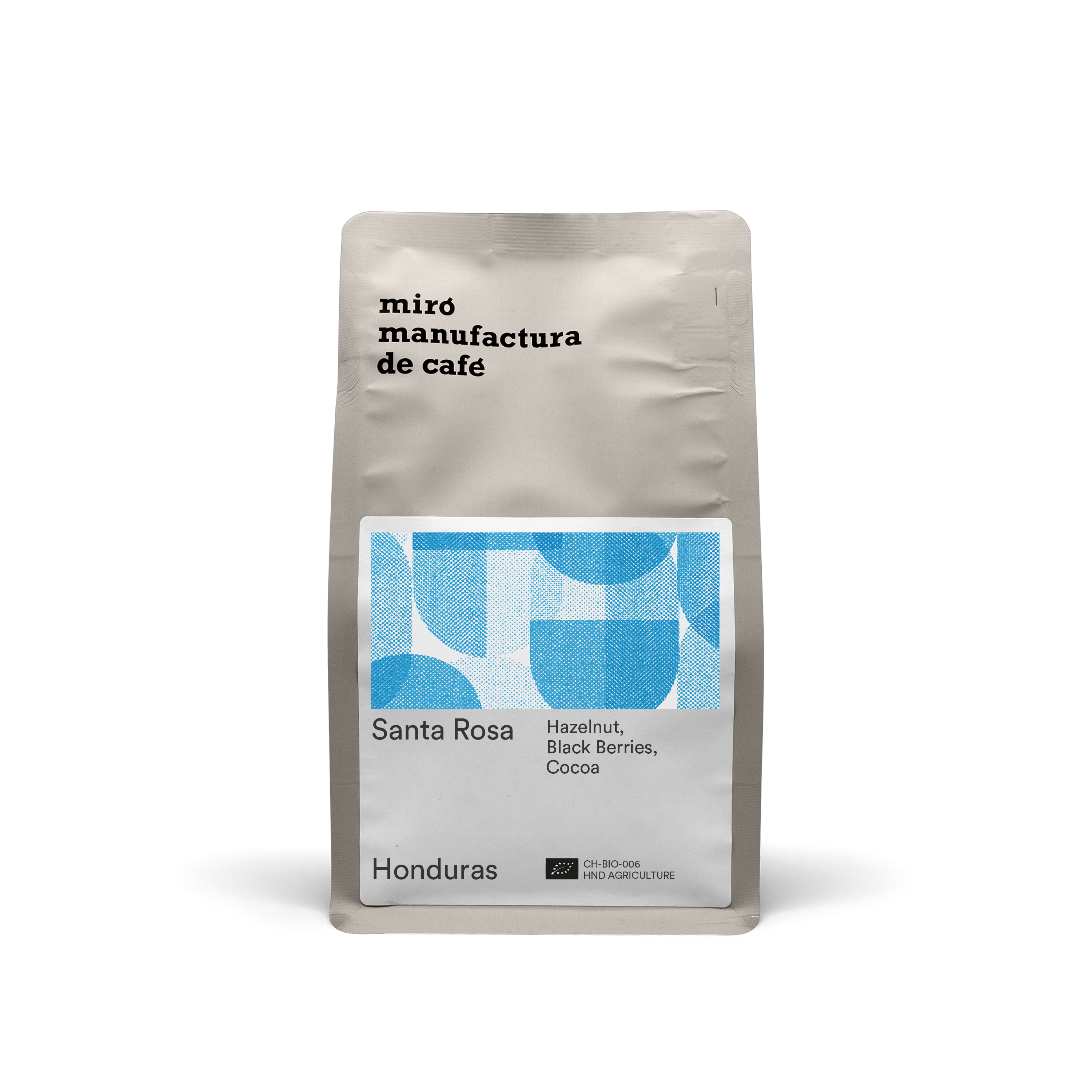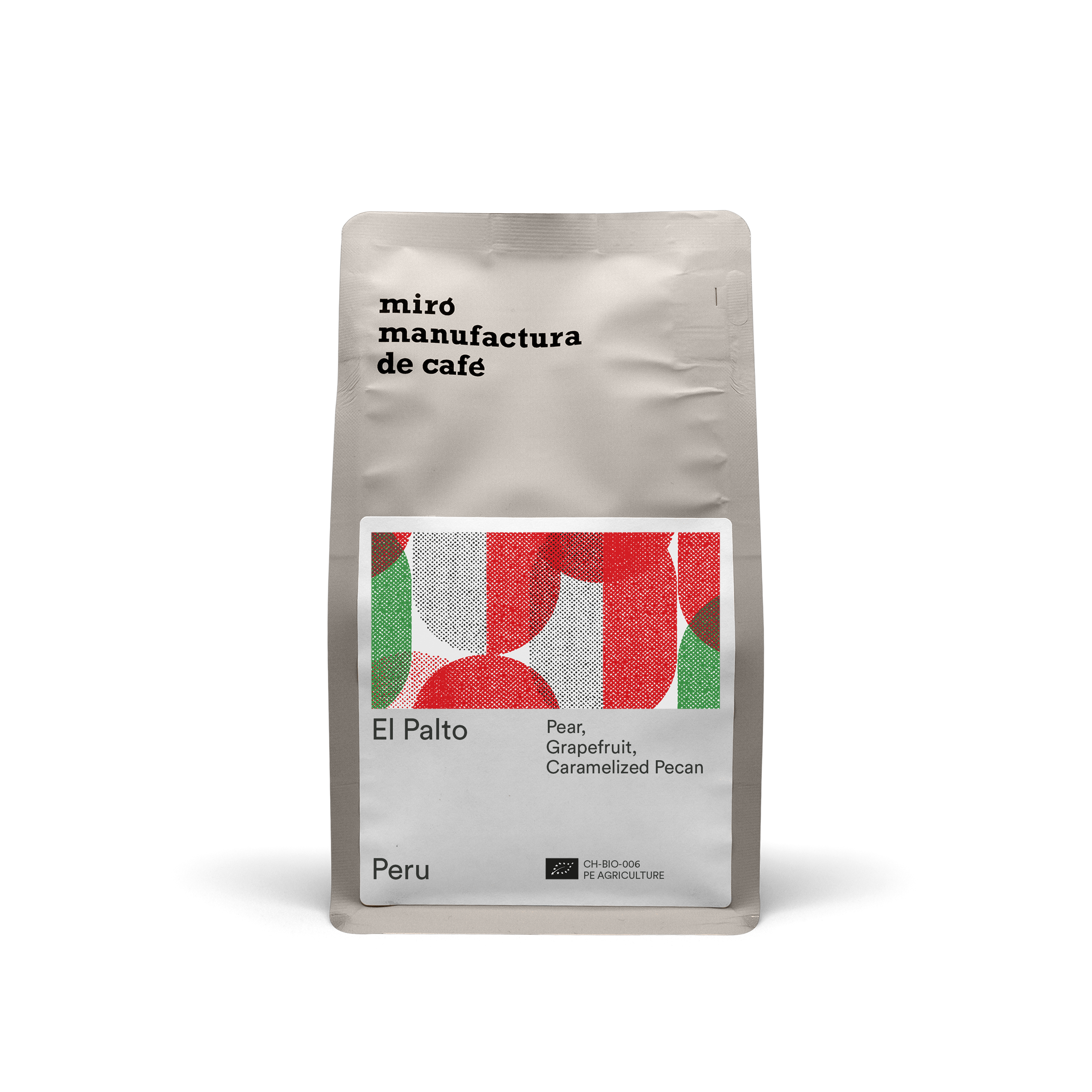Coffee Roasting simply explained
We’ve been roasting for over 10 years now – and still can’t get enough of that lovely popcorn smell in the air on roasting days. Did you know that roasting coffee doesn’t just smell like popcorn, it also sounds like popcorn at the first crack. Sounds Spanish? Read on to find out more about what happens during the roasting process.
We started roasting in a small shed in Enge, Zurich, back in 2012. Our coffee truck was kind of a laboratory to find out what you liked most and to create our first roasting profiles.
We’ve been roasting at Brauerstrasse for almost 5 years now – on the exact same roaster we bought 10 years ago.
On average, a roast takes about 12 minutes. The duration depends on how much coffee you roast in one go and of course how you want to drink your coffee – a darker, longer roast for espresso or a lighter, shorter roast for filter. The roasting process is divided into three main stages:
(1) Drying, (2) Maillard and (3) Development. Let us give you a short overview and understanding of the process:
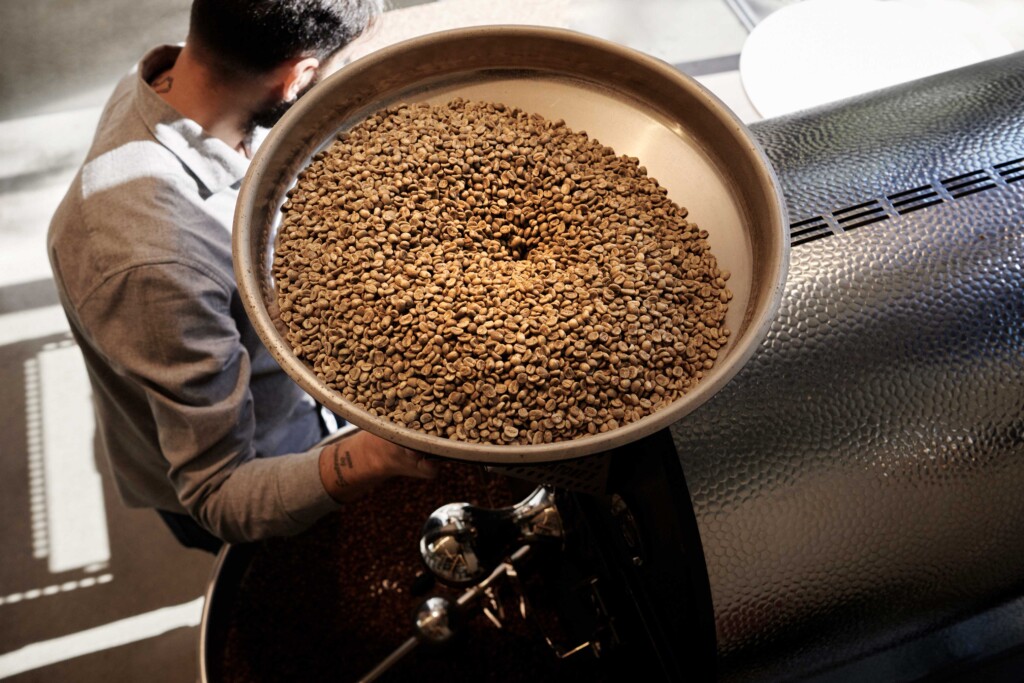
Drying Phase
In the drying phase, the bean begins to dry by heating the residual moisture it contains.
Green coffee is exported with approximately 9 – 12% moisture in the bean to ensure there is enough for the roasting process so that a bean doesn’t burn immediately and not too much, which would cause the beans to mould during transport and storage.
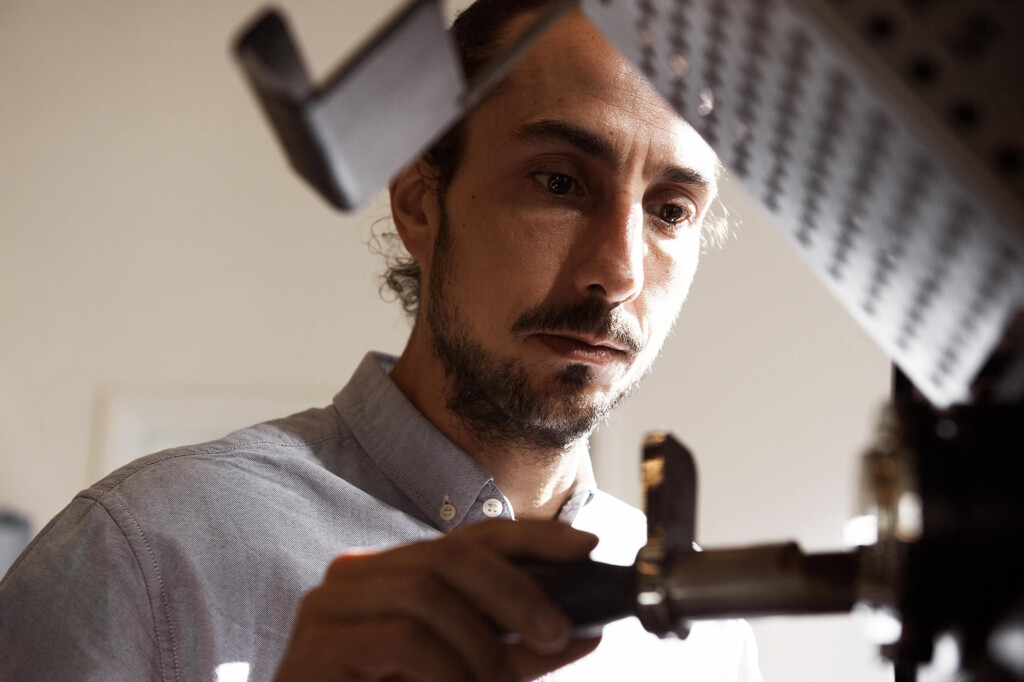
Maillard
You can compare it to the caramelisation you know from cooking. Now the beans start to turn yellow and cinnamon in colour and you can smell cereal, popcorn, and bread in the air – sometimes even a few blocks away!
The end of the Maillard phase is marked by the first crack. It sounds like popcorn popping in your toaster. This means that the remaining moisture has found its way out of the bean and the development phase begins.
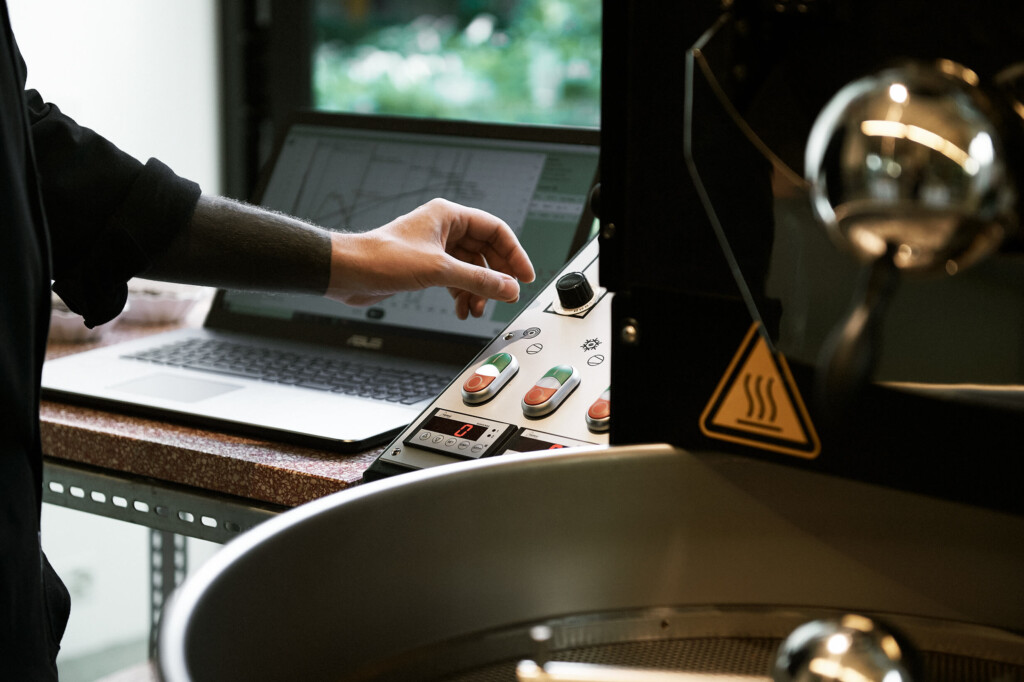
Development
This is a very delicate stage where you have the most control over the flavours that develop in the bean – and the flavours that end up in your cup.
If not handled carefully – for example, if too much heat is applied to the roaster – your coffee could start to taste smoky and lose the wide variety of flavours it could bring if handled correctly.
